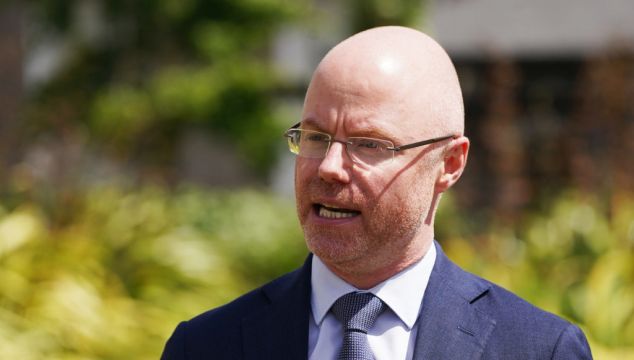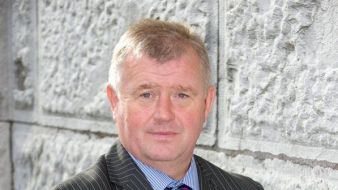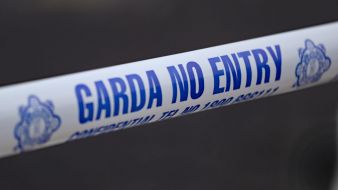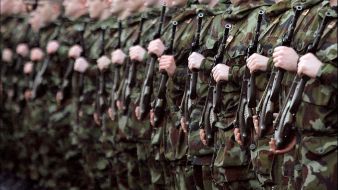A strategic advisory group on Monkeypox has been established by the Minister for Health Stephen Donnelly.
The group will be responsible for advising the Minster for Health and the Government on how best to respond to the monkeypox outbreak.
The announcement follows last month’s declaration by the World Health Organization that the monkeypox outbreak represents a Public Health Emergency of International Concern (PHEIC), the health body’s highest level of alert.
The Group will be chaired by the interim chief medical officer, Prof Breda Smyth and its membership includes experts from multiple disciplines across including from public health, infectious disease and immunology fields.
Mr Donnelly said: “Since the first monkeypox infection alert, Ireland has moved quickly to respond to the monkeypox disease outbreak. The Strategic Advisory Group will strengthen our response.
“My Department alongside the HSE, HPSC, partner agencies and stakeholders have been working hard to help prevent and reduce monkeypox infections in Ireland.
“We have implemented a broad range of public health measures to control the disease outbreak and I look forward to furthering this work and broadening the many communications and engagement activities that have been undertaken to support those impacted by monkeypox.
Prof Smyth said: “It's important to be aware of monkeypox and its symptoms in order to protect ourselves and others. Symptoms include: a high temperature (380C or higher), muscle pains, swollen glands, exhaustion, headache, backache, shivering or chills. A rash usually appears 1 – 5 days after the first symptoms. The rash often begins on the face and then spreads to other parts of the body.”
Limited vaccines
Meanwhile, the HSE has limited monkeypox vaccines to treat only 10 per cent of the estimated 6,000 to 6,500 identified as at risk.
The HSE estimates that there are between 6,000 and 6,500 people at risk from Monkeypox most of whom identify as gay or bisexual men.
While there will be only 600 doses of the vaccine available in the coming weeks, the HSE’s National Clinical Lead for Sexual Health Services, Professor Fiona Lyons said she was “very optimistic” more doses would be sourced before the end of the year and into early next year.
The priority for immediate treatment is people who have been close contacts of patients with the virus, this will be followed by individuals who were diagnosed with early syphilis between September 2021 and July 2022, she told Newstalk Breakfast and RTÉ radio’s Morning Ireland.
“We cannot do what we would like to do, we are doing everything to source extra vaccines.”
Prof Lyons said that they had to be pragmatic and it had been determined that the quickest way was by offering the vaccine to people with an early syphilis diagnosis. This could be done through sexual health services.
Inviting people with this diagnosis to avail of the vaccine was a more efficient way, she explained. Inviting people to come forward led to a risk of missing people who needed the vaccine.
“We will be proactive in reaching out.”
There have been no deaths from Monkeypox in Ireland, she said. The infected individuals (100 to date) had not experienced severe symptoms, though they had been relatively uncomfortable.
Prof Lyons encouraged anyone who thought they might have been exposed to the Monkeypox virus to make an appointment with a sexual health service, if their symptoms were serious they should seek emergency treatment, but alert medical staff that they could be infected.
Meanwhile, executive director of HIV Ireland Stephen O'Hare has said that the short supply of vaccines will not be sufficient to stem the spread of the virus in Ireland.
Mr O'Hare said that 90 per cent of those who need to get the vaccine will not get it in the first phase.
“As NIAC has identified we need to vaccinate against monkeypox at the pre-exposure phase and though it's good we are vaccinating people, with only 10 per cent of people going to be covered it is going to be insufficient to stem the onward transmission of monkeypox in the population,” he told RTÉ radio’s Morning Ireland.
At present transmission of the Monkeypox virus is not confined people who are gay, bisexual or transgender, but that was where most of the cases are occurring. This was causing a great deal of anxiety in the community, he added.
The health authorities and the Government need to try to secure other sources of the vaccine as they are relying on one supplier at the moment, he said.







